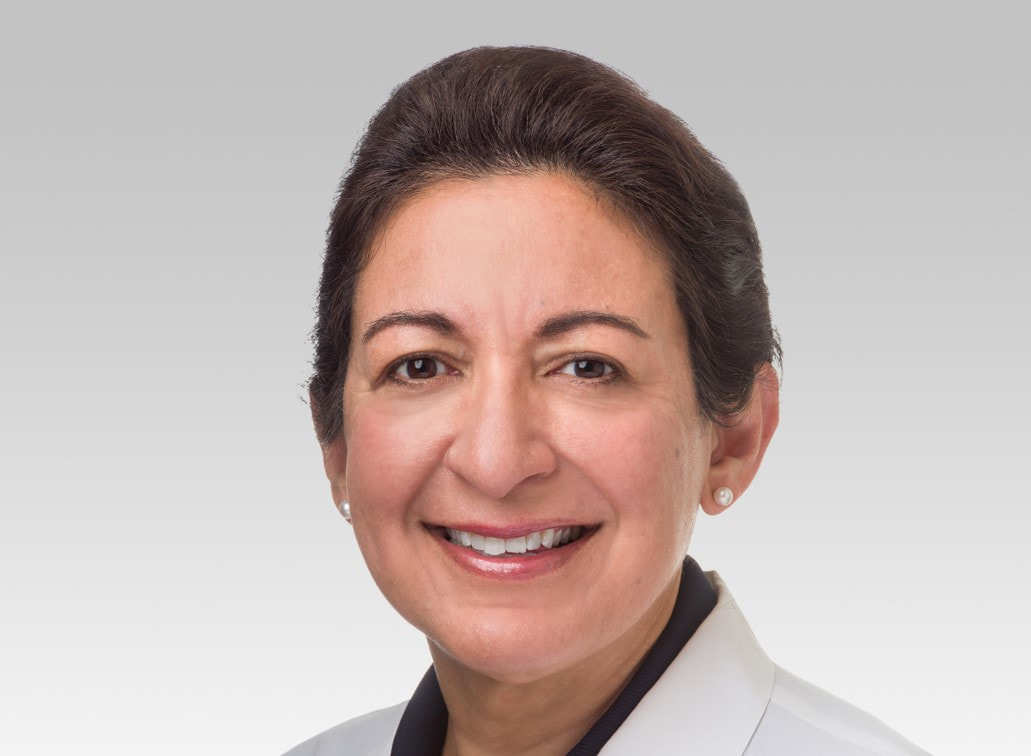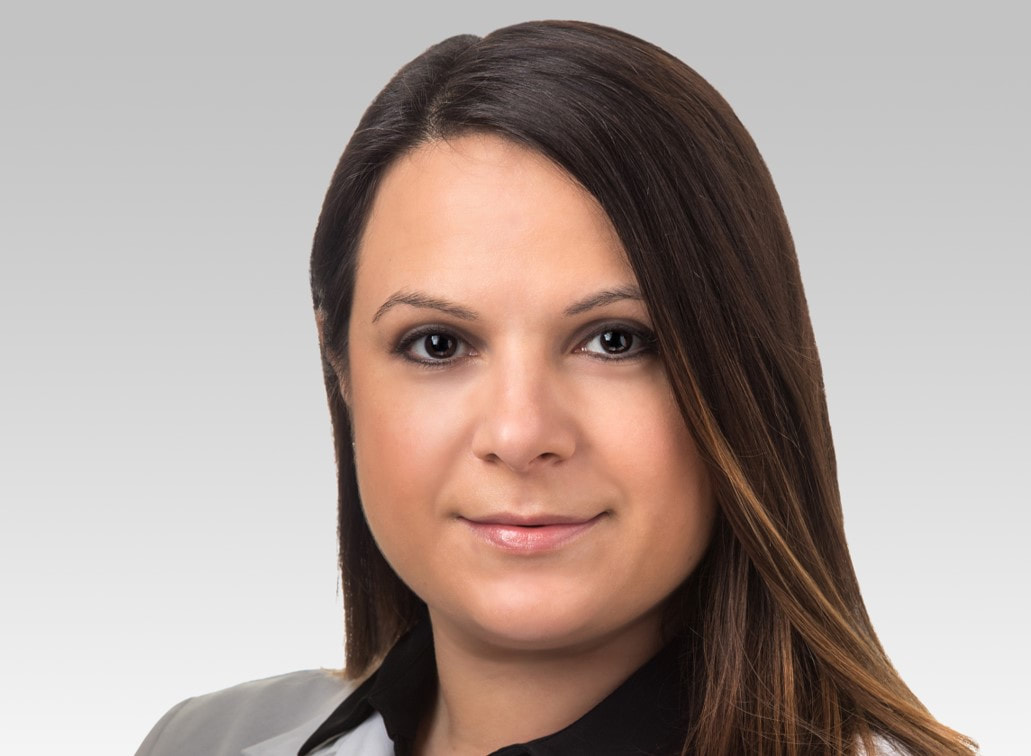September 2023
WOMEN LEADERS AND INNOVATORS IN RHEUMATOLOGY
In honor of Women in Medicine Month, we are spotlighting women rheumatologists who have shaped the Northwestern Medicine Division of Rheumatology and are transforming the field. Learn more about a few of these inspiring women and the work they are doing to advance patient care and scientific research below.
Meet a Few of the Women Leading the Way in Rheumatology
|
Irene Blanco, MD
Irene Blanco, MD, MS, is a professor of Rheumatology and is the co-director for the Clinical Research Ethics and Equity Consultative Service, part of the Northwestern Medicine Clinical and Translational Sciences (NUCATS) Institute. Her clinical interest is in the connective tissue diseases, most notably systemic lupus erythematosus. Her research interests focus on addressing health disparities and adverse social determinants of health in rheumatology. As the co-chair of the Diversity, Equity and Inclusion Sub-Committee of the American College of Rheumatology (ACR), Dr. Blanco is working to diversify the field of rheumatology. She is currently working on developing graduate medical education curriculum addressing disparities and health equity. The ACR recently recognized Dr. Blanco as a Rheumatology Change Maker. |
Leveraging Rheumatology Medical Education to Address Health Disparities
In this Better Edge podcast episode, Dr. Blanco discusses her research on the health disparities in rheumatic diseases. She also talks about the role of medical education in addressing these disparities and improving patient care and outcomes.
In this Better Edge podcast episode, Dr. Blanco discusses her research on the health disparities in rheumatic diseases. She also talks about the role of medical education in addressing these disparities and improving patient care and outcomes.
|
Anisha B. Dua, MD
Anisha B. Dua, MD, is an associate professor of Rheumatology, director of Northwestern Medicine Vasculitis Center and director of the Northwestern University Rheumatology Fellowship Program. In addition, Dr. Dua is co-chair of the ACR Workforce Solutions Committee, on the board of directors for the Vasculitis Foundation and a member of the Scientific Advisory Council for the Rheumatology Research Foundation. As part of an expert panel, Dr. Dua recently helped develop several ACR guidelines for vasculitides published in Arthritis & Rheumatology. There Is No Diagnosis of Exclusion in Rheumatology Many rheumatic diseases, including PMR, seronegative RA, sarcoidosis, central nervous system (CNS) vasculitis, FM and Behçet’s syndrome, are considered "diagnoses of exclusion." In this recent article published in Rheumatology, Dr. Dua concluded that the concept of "diagnosis of exclusion" should be eliminated from the rheumatologic lexicon as it leads to overtesting, diagnostic errors and goes against diagnostic reasoning principles. |
|
Yvonne Lee, MD
Yvonne C. Lee, MD, MMSc, is the Helen Myers McLoraine Professor of Rheumatology and associate professor of Epidemiology. Dr. Lee is also associate director of the Rheumatology T32 training grant and associate director of the Methodology Core of the Northwestern University Core Center for Clinical Research. In addition, she a member of the ACR Research and Publications Subcommittee. Dr. Lee’s research focuses on pain mechanisms in systemic rheumatic conditions. She is an expert on the effects of CNS modulation of pain in rheumatoid arthritis. Dr. Lee has contributed novel insights into the role of CNS modulation of pain using novel techniques such as quantitative sensory testing and neuroimaging. Yvonne Lee, MD, Awarded NIAMS R21 Grant to Study Pain Biomarkers in Rheumatoid Arthritis Dr. Lee was recently awarded a R21 from the National Institute of Arthritis and Musculoskeletal and Skin Diseases (NIAMS) to understand the relationship between peripheral immune cells and the centralized pain phenotype of rheumatoid arthritis patients with pain refractory to treatment. These results can be used to assess potential targets and inform the development of biomarkers in clinical trials of non-opioid analgesics. |
|
Rosalind Ramsey-Goldman, MD
Rosalind Ramsey-Goldman, MD, is director of the Northwestern Medicine Lupus Program and the Gallagher Research Professor of Rheumatology. She is also chair of the ACR Collaborative Initiatives (COIN) Special Committee and a member of the Lupus Society of Illinois' medical advisory board. Her research program examines risk factors to minimize complications in lupus, including osteoporosis, malignancy and cardiovascular disease. Through national and international collaborations, Dr. Ramsey-Goldman studies genetic risk factors for disease severity/susceptibility; collaborates on investigations studying disease pathogenesis; develops disease classification criteria, flare assessments, nephritis guidelines and assessment of patient outcomes (fatigue). Many of these clinical investigations incorporate analysis of lupus in multiethnic cohorts that examine clinical-, lab- and health-related outcomes. She is active in designing, monitoring and performing clinical trials, identifying novel biomarkers and testing innovative therapies. Dr. Ramsey-Goldman has extensive experience in study design, development and use of clinical and biologic registries, as well as numerous collaborations with laboratory scientists performing translational research in systemic lupus erythematosus (SLE). |
She is currently primary investigator on a R01 grant from the National Institute of Arthritis and Musculoskeletal and Skin Diseases to test the effectiveness of a motivational interviewing program intervention to reduce fatigue in patients with lupus. Dr. Ramsey-Goldman was recently awarded a grant from the National Institute of Arthritis and Musculoskeletal and Skin Diseases to design, implement and evaluate an intervention that trains community leaders in Black communities with rheumatic conditions to disseminate vaccine-related information through their social networks to promote racial justice in vaccine uptake.
Evaluating the Construct of Damage in Systemic Lupus Erythematosus
Dr. Ramsey-Goldman and other international SLE experts are revising the SLE damage index, the SLICC/ACR Damage Index (SDI), which is the most common tool for assessing damage in SLE worldwide.
Evaluating the Construct of Damage in Systemic Lupus Erythematosus
Dr. Ramsey-Goldman and other international SLE experts are revising the SLE damage index, the SLICC/ACR Damage Index (SDI), which is the most common tool for assessing damage in SLE worldwide.
|
Carrie Richardson, MD
Carrie Richardson, MD, is an assistant professor of Rheumatology and co-director of the Northwestern Medicine Scleroderma Program. She specializes in treating scleroderma and has a background in clinical and translational research in scleroderma. Dr. Richardson is the principal investigator at Northwestern Medicine for CONQUER (COllaborative National QUality and Efficacy Registry) — a first-of-its-kind nationwide patient registry and biosample repository aimed at improving care and developing more effective, personalized therapies for patients with systemic sclerosis. |
|
Leena Sharma, MD
Leena Sharma, MD, is the Chang-Lee Professor of Preventive Rheumatology and professor of Epidemiology. Dr. Sharma is also director of the FIRST-DailyLife (Fostering Innovative Rheumatic Disease Team-Based Research to Improve Daily Life) Center, one of five Core Centers for Clinical Research (P30) funded by the NIAMS. She also serves as director of the Northwestern Medicine Clinical and Translational Sciences Institute’s Multidisciplinary Career Development Program (KL2). The overarching goals of Dr. Sharma’s research program are to advance novel approaches to prevent disease and disability development and progression in people at high risk for or with knee osteoarthritis. |
Through large-scale, longitudinal studies of persons at high risk, Dr. Sharma seeks to shift the initiation of disability prevention efforts to earlier stages, when individuals are well enough to execute them, before the whole-organ downward spiral of osteoarthritic disease progression. Her interdisciplinary team has examined the role in osteoarthritis disease progression and functional decline of an array of factors, including: varus-valgus alignment, frontal and sagittal plane instability; joint proprioceptive acuity; quantitative characteristics of gait, knee and hip muscle strength; meniscal damage; other tissue factors by MRI; self-efficacy and pain catastrophizing.
The Association Between Severity of Radiographic Knee Osteoarthritis and Recurrent Falls in Middle and Older Aged Adults
In a study recently published in The Journals of Gerontology: Series A, Dr. Sharma and other investigators found that older adults with knee osteoarthritis (KOA) have a higher risk of recurrent falls compared to those without KOA independent of established risk factors. They conclude that fall prevention efforts should target older adults with all stages of KOA.
The Association Between Severity of Radiographic Knee Osteoarthritis and Recurrent Falls in Middle and Older Aged Adults
In a study recently published in The Journals of Gerontology: Series A, Dr. Sharma and other investigators found that older adults with knee osteoarthritis (KOA) have a higher risk of recurrent falls compared to those without KOA independent of established risk factors. They conclude that fall prevention efforts should target older adults with all stages of KOA.










